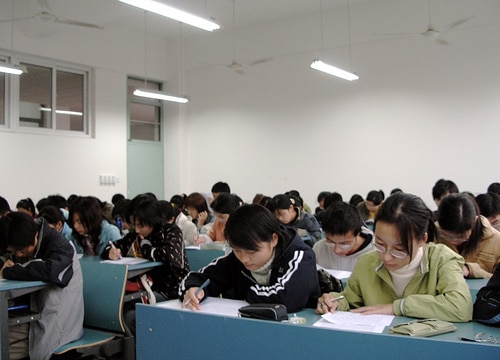It used to be that comments like “You deserve it!” would make my day, as it made me feel like people recognized how hard I work and toil.
But on Ivy Day, with an admission from Yale, even having worked so hard for so long, I found myself with strange, mixed feelings, and doubting whether I really deserved it.
“Hard work pays off” seems to be the motto my classmates and I believe in, but I have learned, with dismay, that most people cannot succeed even if they work hard. In high school, the gap in education quality is wider than most people think. In my school, every student will make it to a decent, if not top, university in China. But in most other schools, many kids are not able to score high enough to go to college. A statistic from three years ago indicated that the investment in one student at my school was thirteen times the average in the city of Beijing. This clearly suggests that students in my school are supported by some of the best educational resources in the city, if not the country.
Last June, I went on a volunteer teaching school trip to a small, poor village in Hebei Province, only three hours away from Beijing. I cannot say that I made a difference for the children I taught, but these children did make me reconsider the real meaning of my own achievement and my school’s success. In the middle school where my classmates and I taught, the kids had to wake up at 5:30 am and begin their day at 5:50 a.m. The day was packed with classes that didn’t end until 9:20 at night. It was hard to imagine working that hard while just in middle school, but it was even harder to believe that only five percent of those children would score well enough to enter high school. The rest would take up jobs at the bottom of the society. These children work extremely hard, but they always end up empty-handed.
I do not have solutions or answers to the problem of education inequality in China but at the end of Ivy Day, I feel that I owe my success — the ability of my hard work to payoff — to my parents and relatives who love me, to my teachers and friends who support me, and to my environment which grants me countless opportunities.
What I hope I can do someday is to work to address this education gap, to help children like those in the Hebei village to see their hard work and their efforts pay off. My endeavor is far from perfect, and those who are accepted by Ivies are far from perfect. But perhaps after I graduate, I can help provide greater access to a good education.


